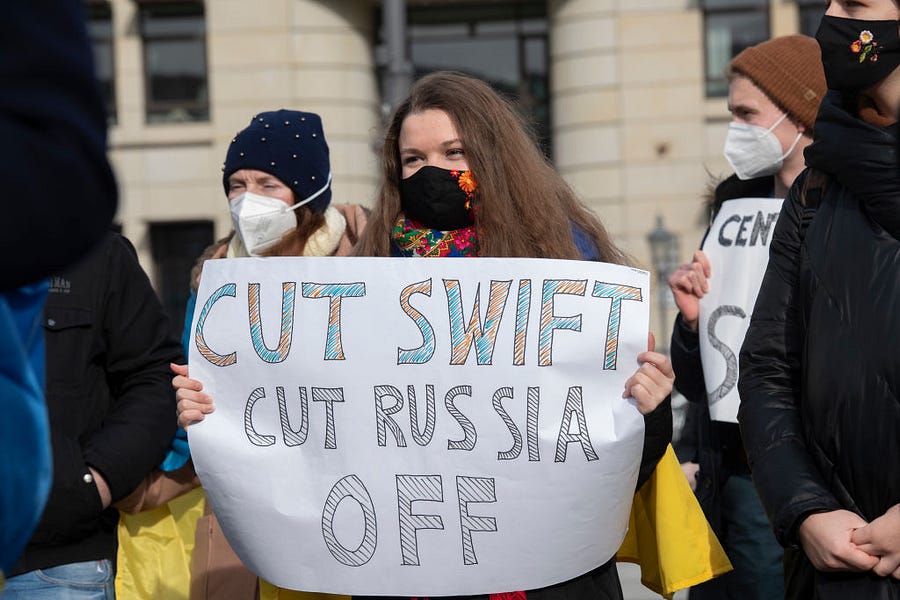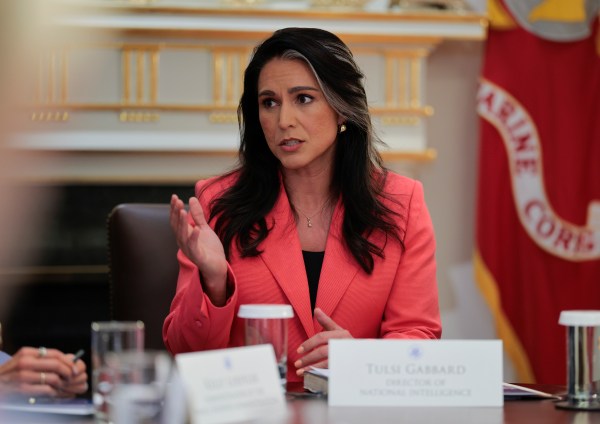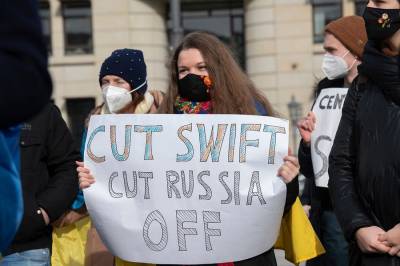After Russian President Vladimir Putin launched his invasion of Ukraine Thursday, the heads of the Baltic states—Latvia, Estonia, Lithuania—joined Ukraine in calling for leaders to cut Russia out of an international bank communications system.
But what is the Society for Worldwide Interbank Financial Telecommunication, or SWIFT?
SWIFT, founded in 1973, is the messaging network through which banks communicate with each other so they can transact payments. It’s especially important for communicating in international transactions. “It’s the cans and the strings by which banks communicate to settle trade and transfers,” Hudson Institute Senior Fellow Marshall Billingslea tells The Dispatch. Cutting Russia off from SWIFT would cut its banks off from the 11,000 other other banks in the network from more than 200 countries.
In 2019, SWIFT facilitated more than 33 million intrabank messages per day, according to its 2020 annual report.
Though world powers such as the United States and United Kingdom could probably force SWIFT to boot Russia, the organization is a conglomerate owned by its members or shareholders. A board of 25 directors manages the Belgium-based entity, and the G10 countries (Belgium, Canada, France, Germany, Italy, Japan, the Netherlands, Sweden, Switzerland, the United Kingdom and the United States) provide oversight as well.
“It is time to reach for much tougher sanctions than those originally planned, by which I mean above all a sanction in the area of the so-called SWIFT,” Czech Republic President Milos Zeman said in a speech Thursday, joining Ukraine and the Baltic states in their call for “de-SWIFTing” Russia.
Cutting Russia out of SWIFT would be a relatively quick way to eliminate its access to the international markets it needs to sell its energy. (Russia, which has maintained strong trade surpluses for years, is also a key exporter of minerals, metals, chemical goods, and more.)
Excluding a country from SWIFT has happened before. SWIFT prohibited Iran from using its services in 2012 following sanctions from the European Union. Most Iranian banks were allowed back in when the sanctions expired in 2016 after agreeing to nuclear negotiations with the U.S., but not before its oil exports took a hard hit.
But shutting Russia out of SWIFT may not be the only way to pinch Putin’s pocketbook. Some analysts have also advocated a stronger thrust of sanctions that could include de-SWIFTing along with several other measures.
Billingslea, who served as assistant secretary for terrorist financing in the Department of the Treasury, among other posts, in the Trump administration, believes the sanctions U.S. President Joe Biden, the United Kingdom, and the European Union announced Thursday will help. But he outlined several sanctions he argues would hit Russia harder, such as sanctioning its central bank, targeting its entire financial sector (not just a few individual banks), and sanctioning Putin himself and top oligarchs.
Biden indicated Thursday the latest round of sanctions is designed to minimize harm on the energy sector and the countries that depend on Russia for energy. But eventually, says Billingslea, “in order to do what we need to do, you’re going to have to bite the bullet and hit the exporting.”
Because the clock in Ukraine is ticking, there’s little time to let sanctions play out in Russia’s economy over weeks or months, as Biden implied to reporters Thursday. “You have to do all these measures simultaneously,” Billingslea said.
Though Biden said Thursday disconnecting Russia from SWIFT is still on the table, some European allies, namely Italy and Germany, remain hesitant to do so. The European Union did enact sanctions Thursday it says will isolate 70 percent of Russia’s banking sector from international markets and that targets Russian oligarchs.
“It should be a topic of conversation,” Billingslea said of the SWIFT question. “It should be in the mix.”







Please note that we at The Dispatch hold ourselves, our work, and our commenters to a higher standard than other places on the internet. We welcome comments that foster genuine debate or discussion—including comments critical of us or our work—but responses that include ad hominem attacks on fellow Dispatch members or are intended to stoke fear and anger may be moderated.
With your membership, you only have the ability to comment on The Morning Dispatch articles. Consider upgrading to join the conversation everywhere.